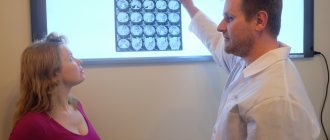Savant syndrome is a special type of mental disorder that negatively affects brain function. Most often, the disease occurs in mentally retarded people with impaired perception of the surrounding world or in autistic people. It is difficult for patients to understand what is happening around them, to take care of themselves in everyday life, and to do things familiar to a healthy person. But despite this, each patient has his own “island of genius.” This means that such people have various unique abilities, which are not difficult to discover, the main thing is to find the right approach.
In savants, experts identify amazing mental knowledge or abilities in any field of activity. At the same time, in terms of the level of intellectual development, patients stop at the stage of debility.
The syndrome comes from the French word “savanta,” which translates to “scholar.” Today, according to UN statistics, there are about 67 million people with autistic disorders. Of these, only 50 are sick with “pathology” and absolutely each of these people has unique abilities and talents.
Causes of Savant syndrome
Most often, the anomaly occurs due to genetic disorders and can be inherited. The disease usually affects people with autism or other mental disorders. The syndrome can also occur due to previous traumatic brain injuries or brain diseases. Many scientists believe that savantism is a consequence of perinatal pathology.
All the causes of the anomaly are still unknown, but experts estimate that the disease is five times more likely to affect men than women. This is explained by the fact that the male chromosome contains dozens of genes that contribute to the birth of a child with this disease.
Some doctors suggest that the anomaly develops due to a special virus that causes neurons to mutate. And magnetic resonance imaging and computed tomography studies show that in people with Savant syndrome, the right hemisphere is much better developed than the left. That is why they have special abilities.
It has also been confirmed that patients with the syndrome have a special brain structure: it is not divided into two hemispheres.
Savantism cannot appear due to diseases acquired during life.
When should you see a doctor?
Parents should bring their child to an appointment with a specialist in early childhood, so that through corrective classes they can increase the likelihood of his adaptation in society. Otherwise, precious time will be lost. You need to contact a psychiatrist, since it is this doctor who diagnoses and treats various mental disorders.
Even with the use of modern technologies, doctors and scientists cannot definitively determine why children develop savantism. There are only guesses and some hypotheses. Numerous studies confirm that in such patients some parts of the brain are enlarged.
Effective treatment is based on adaptation measures that help prepare patients for the outside world and society. To achieve the maximum therapeutic effect, all conditions for the gradual development of a person’s genius abilities must be created.
Risk factors
Since in most cases savantism occurs due to a hereditary predisposition, the main risk factors are genetic disorders and mental disorders. These include: Asperger's syndrome, autism and mental retardation.
In addition, the following, no less significant, risk factors are identified:
- Prematurity (birth of a baby before 35 weeks);
- Baby weight not exceeding 2500 g;
- Mature age of at least one of the parents (mother - over 40 years old, father - over 49);
- Congenital malformations;
- Injuries received during childbirth;
- Postpartum resuscitation of the child;
- Recent infections and brain diseases;
- Male gender;
- Gene mutations due to unfavorable environmental conditions;
- Lack of vitamins, especially vitamin D.
Prevention
Today there are no effective ways to prevent the development of Savant syndrome, since science does not know the exact causes of this mental disorder. Gynecologists recommend undergoing a full examination before planning a child.
You need to give up alcoholic beverages and nicotine, and also adhere to proper nutrition. While carrying a child, it is necessary to regularly visit a gynecologist to reduce the risk of premature birth and to identify possible fetal development abnormalities in the early stages.
Pathogenesis
The modern classification of diseases does not consider the syndrome as an independent disease. It is believed that the disease accompanies autistic disorder. The reason for the development of the anomaly still remains unknown.
There is an opinion that the disease occurs due to various pathological processes that can affect the asymmetry of the cerebral hemispheres. Typically, in healthy people, the right hemisphere, which is responsible for creativity, spatial and imaginative thinking, is smaller than the left hemisphere (analytical thinking and verbal information). Studies show that in patients the left hemisphere is damaged, which means the right hemisphere fully compensates for its dysfunction. Therefore, a person develops amazing abilities and talents.
Symptoms of the disease
The symptoms of the disease are difficult to confuse with any other disease, since they are all specific. For example, savants are not able to independently take care of themselves in everyday life - they cannot eat or dress without help, it is difficult for them to go shopping or just talk to strangers. But with all this, such people are real geniuses in any field: they can completely retell a book they read yesterday, add up huge numbers in their heads in a matter of seconds, or accurately reproduce a musical composition they heard for the first time.
Unfortunately, the areas of knowledge of such people are limited. Patients have phenomenal memory, artistic, musical, linguistic, mathematical or mechanical talents, but they often do not know their name or birthday. Sometimes patients have several amazing abilities at once. Patients with the syndrome remember all the small details: they can even describe minute by minute the day that happened several weeks ago.
People with Savant syndrome live in their own fantasy world. Typically, patients are not communicative, it is difficult for them to construct a sentence and express their thoughts, so they cannot fully integrate into society. Patients have speech and movement disorders. They do not look into other people's eyes and are afraid of being touched.
Savantism is also accompanied by:
- Physical and mental retardation;
- Mental disorders;
- Autism;
- Down syndrome;
- Brain dysfunctions;
- “Islands of Genius.”
First signs
If the disease was congenital, then the person’s unusual abilities will begin to manifest themselves in childhood. For example, children who have just learned numbers can immediately add them in their minds without error.
Thus, at the age of 2, Kim Pik, who was suffering from savantism, could completely remember the text of a book that had just been read to him. Already at the age of 12, he graduated from school, as he completely mastered the program without anyone's help.
Stages
Usually the disease is accompanied by various forms of mental retardation - epilepsy, autism, Down syndrome. Each of them has the main similarity - the earlier the correction of the child’s behavior and development was started, the greater the chances of a person’s successful adaptation to society in the future. That is why the early stage of development of the anomaly is most important.
The initial stage accompanies the child from the first days of his birth. In such children, it is not difficult to notice developmental differences already at the age of 1-2 years. At the same time, mental disorders become more obvious. Modern diagnostic technologies make it possible to identify the syndrome in infancy.
Forms
The incredible abilities of patients usually manifest themselves in one type of activity:
- In music. Most often, patients play the piano, have absolute pitch and can accurately repeat all notes.
- In sculpture or painting. Savants don’t even need to be taught how to draw; they themselves know how to do it correctly. Their drawings and sculptures are particularly realistic and colorful.
- In modeling. Patients not only perfectly model simple objects, but are also able to produce complex small parts.
- In mathematics. Mental calculation of huge examples, repetition of a series of multi-digit numbers and other mathematical abilities - all this is also a distinctive feature of savants.
- In mechanics. Patients can determine the exact distance without any measuring instruments.
- In linguistics. This form is much less common than the others, but it also occurs. Some savants are true polyglots and speak several dozen languages perfectly at once.
- In time. People with Savant syndrome can accurately tell time without a chronometer or watch.
- They have a good memory. A representative of this form is Kim Peak, who can read an entire page of a book in 10 seconds. Today it is known that he read more than 10,000 books and can reproduce the text of each of them verbatim.
- Sometimes patients have a more developed sense of smell, vision and touch than the average person.
Abilities and areas of knowledge in which savants are strong
Most often, savants' abilities are manifested in the following areas:
- Music. Many savants have an absolute ear for music and can play the piano well.
- Sculpture and painting. Even without special training, they create sculptures and paintings that are strikingly realistic.
- Reading. Such people read very quickly and win speed reading championships.
- Memory. Savants reproduce texts they heard once without errors
- Linguistics. These people easily learn foreign languages.
- Mechanics. They accurately determine the distance to an object without any measuring instruments.
- Mathematics. Savants quickly make mental calculations.
And in order not to be unfounded, we invite you to get acquainted with some world-famous savants.
Famous people with the syndrome
Many patients with the syndrome are truly great and brilliant people. The most famous of them are:
- Stephen Wiltshirk is a talented painter from Britain, famous for his phenomenal memory. Little Steven was diagnosed with Savant syndrome at the age of 3. At the age of 5, his parents first noticed his special talent for painting. Now he can reproduce any landscape he has ever seen on canvas.
- Kim Peek was born with a cranial herniation, cerebellar injury and an enlarged head. Typically, such disorders lead to either giftedness or mental retardation. In Kim's case, it all happened at once. The child was also diagnosed at 3 years old. Over time, the teenager began to memorize entire books, and later he developed a real talent for music.
- Tammet Daniel was born with epilepsy and was developmentally delayed, but already at a young age he knew several dozen languages, and he could learn absolutely any dialect, even the most complex. In addition, Tammet also has mathematical abilities.
- Ben Underwood lost his eyes as a child, but this did not stop him from being excellent at navigating the terrain. To do this, he clicks his fingers to catch the echo.
- Derek Paravicini also has Savant syndrome, but despite the diagnosis he was able to become a famous jazz band musician.
Video: about the most famous savants
Possible complications
True genius in people with savantism most often coexists with various mental illnesses on the autism spectrum, which are characterized by certain communication difficulties. As a child grows older, depression may occur, which is associated with problems of self-realization and a feeling of loneliness.
Psychiatrists note that a person is most often oppressed by the lack of opportunity to fully integrate into society and find contact with people around him. Various scientific papers have reported that patients with savantism are predisposed to thoughts of suicide.
Savant syndrome itself is not dangerous to humans. But this disease is combined with other mental disorders that negatively affect the patient’s cognitive abilities. It is necessary to surround such a person with care and support so that he does not experience loneliness and detachment. Only in this case will a patient with savantism live a long and interesting life.
Diagnosis of the syndrome
The diagnosis can be made by the presence of brain dysfunction and by collecting the medical history of the patient and his relatives. The doctor must prescribe encephalography, CT and MRI studies, and collection of biomaterials for laboratory tests. It is imperative to conduct an IQ test to identify indicators of empathy. It is also necessary to carry out differential diagnosis to exclude other developmental anomalies. But most often, pathology becomes noticeable due to the combination of genius and talent together with mental disorders.
Treatment of the syndrome
Therapy for this syndrome is possible with a psychiatrist, but it is worth saying that there is no special treatment for the disease. The main thing is to adapt a person to normal life in society and improve his emotional and physical state. Treatment with medications is usually not used.
Each unique ability that was discovered in a child requires special treatment. Sometimes the actions of teachers lead to the loss of all abilities of children. This is why it is important to find a truly qualified specialist.
Corrective measures
First of all, patients should be adapted to life in society with other people, their emotional and psychological state should be improved. For this purpose, physiotherapy, developmental programs and rarely drug treatment are usually prescribed.
Art therapy, fairytale therapy, music classes, physical education and relaxing massage sessions are suitable for the socialization of children. Later, teenagers are introduced to social activities and improve their physical fitness. Classes on speech development are also conducted.
In addition to all this, the patient should lead a healthy lifestyle and give up bad habits. Usually, after such treatment, the symptoms of the disease recede, and the person begins to join a real, fulfilling life.
My recommendations
The main difficulty that parents of savant children face is teaching them self-care and communication skills. They do not perceive verbal instructions from adults. I recommend that parents of such children use alternative methods of communication: pictures, diagrams, sheets placed in prominent places with a graphic representation of the sequence of actions. The savant perceives visual images better than oral speech.
Psychocorrectional work with such children is focused on helping them with socialization. Such children need to be taught to live among people, come into contact with them, and carry out joint activities. A serious obstacle in this process is their poor development of the emotional-volitional sphere.
I noted that art therapeutic technologies fully correspond to the individual characteristics of children with this illness.
In addition to correcting the emotional-volitional sphere, I consider it necessary to develop the logical thinking of these people and expand their ideas about the world around them. Their heads contain multi-volume encyclopedic knowledge, which they absolutely do not know how to use. We need to help them apply their theoretical basis in life.
It is possible to achieve lasting positive dynamics in the psychocorrection of savantism only through long-term work together with a defectologist.










